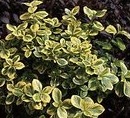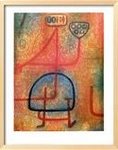My apologies to those who kept checking in this past week only to see my ursine shout out to friends back in Chicago. It was a busy week here at the Kingston office: in addition to teaching (my students and I read Francis Bacon this week), I had job talks to go to (our department is hiring); and on Friday, I subbed in a graduate seminar on the topic of "close reading."
While the weekend couldn't come fast enough, how dismaying it was to turn to this Sunday's Times Book Review, to read yet another surge of anti-academic sentiment in the Gray Lady.
In this week's prefatory editorial column, titled "Up Front", the Editors introduce, indeed valorize, the critic Thomas Mallon in the following terms:
“The only really bold thing I’ve ever done,” Thomas Mallon insisted in a recent telephone conversation, “was to give up tenure at Vassar and start trying, in my mid-30s, to live the kind of life I might have had in my 20s.” Although his aim was to be a novelist (his first, “Arts and Sciences,” was published in 1988; his seventh, “Fellow Travelers,” is due in May), it was literary journalism, not novel-writing, that set him free from the constraints of academic prose. Mallon’s informed but accessible style, evident in his cover review of Claire Tomalin’s biography of Thomas Hardy, has been a feature of his contributions to the Book Review, The New Yorker, The Atlantic Monthly and other publications for the past 20 years — and in “Doubting Thomas,” the column he wrote for GQ magazine through much of the 1990s.
Because, you know, we literary scholars are just a bunch of uninformed, inaccessible cowards, cleaving to the "constraints of academic prose," if not the shackles of tenure, and living unfree, unfulfilled lives. So much for liberal education, eh?
But you know who's really bold and free? Claire Tomalin. In Mallon's review of Tomalin's biography of Thomas Hardy, Tomalin receives the following ringing endorsement:
Tomalin herself examines the novels with the confident judgments of a critic, not the hedged and sometimes overawed appraisals of a scholar. Appreciative of Hardy’s genius, she still finds his body of fiction “exceptionally uneven.” “Tess,” the novel that made him rich, remains by Tomalin’s measure an awkward production in spots, and yet it “glows with the intensity” of Hardy’s imagination. In a fine example of biography’s usefulness to criticism, Tomalin notes that what Hardy called Tess’s “invincible instinct towards self-delight” was a quality the novelist “himself possessed in very small measure,” and thus, perhaps, judged all the more laudable in his heroine. “Jude the Obscure,” written when he was in his mid-50s, reprised Hardy’s earliest “theme of a penniless young man with ambitions and radical ideas.” But so inexhaustible were his feelings on the subject that even today, as Tomalin puts it, “reading ‘Jude’ is like being hit in the face over and over again. ... It was Job retold for a godless world that offers no final consolation or redress.”
Mallon concludes his review on the following note:
[Tomalin] has visited each important locale of Hardy’s life, noticing the large and seemingly simple things academic scholars often miss: “Most of his characters are prodigious walkers. Tess and Jude both walk themselves through the crises in their lives, and Jude effectively kills himself by walking in the rain.” This is an observation that helps readers to square the circle of recognitions, to remember Hardy as a writer whose books they would once finish with the sudden need to get up from the chair and out of the house, to walk, alone, filled with the ancient surefire feelings of pity and fear.
Those of you who followed the post-MLA "academic blog" debates may recall that I had mused whether blogging might help intervene in discourses such as these. I'm still thinking about that topic, as Carrie Shanafelt awaits a long-overdue response from me over at the Valve; and I have much to say here, about Mallon's claims here, and the Times' claims for him, and what they imply and assume about our work.
For once, I am going to resist the urge to be overly didactic, however, or to perform a "close reading" of these passages, and instead put the questions the Book Review raises out to my readers. . . is there no such thing as bad press, when the press misrepresents scholarly work to the general readership, indeed our own consumer base? What do you think of Mallon's claims and assumptions here -- in what ways are they valid, in what ways unmerited? Do we turn the other cheek, take it lying down?
Sunday, January 28, 2007
NYT Sunday (Academic) Book Review; or, Thomas Mallon, we Hardy knew ye
Subscribe to:
Post Comments (Atom)



8 comments:
Heh, I think positioning yourself against academic critics/theorists is the only way to get the media's attention. At CitizenSE, I just wrote on a similar move by Dan McCall way back in 1999, so it's not much of an intervention, but you may find it funny that we both blogged on the same thing....
Too right about the rhetoric being that of attention-getting -- but this *is "the media"! Does journalism really have to stick it to academia to sell papers? Doesn't -- and shouldn't -- the public assume that literary journalists perform a different function/service than do literary scholars? That our audiences expect different things from us? What, really, is the rhetorical purchase here?
Readers might think I'm taking it too "personally," but I'm generally, which is to say, intellectually, interested in concepts of the literary, and what, historically, makes a "man of letters" . . . (and, in this case, I wonder whether Mallon's own rhetorical choices stem more from his *own biography, the "pity and fear" related to "giving up tenure. . .")
I'm hoping to hear somewhere from Hardy scholars. Do Hardy scholars "hedge," "overawed" by their subject? "Miss" the "large and seemingly simple things"? Should we dig into their tenure files and reassess? :)
Thanks for the post -- will check out Dan McCall . . .
I'm by no means a Hardy scholar (though he did make interesting use of recreational sport culture in Desperate Remedies, but that's another post/diss. chapter!) ... but I seem to remember Anne Wallace discussing the walking in Hardy novels that Mallon seems to so joyously declare that scholars, in their typical head-up-their-own-asses posture, overlook. Her Walking, Literature, and English Culture : the Origins and Uses of Peripatetic in the Nineteenth Century (Oxford UP, 1993)may not reference Hardy directly (I'm going to sprint over to the library this aft. and check!) but she does firmly establish that pediconferences were around waaaaaay before Aaron Sorkin "invented" them in The West Wing.
Remember that many journalists are failed academics--or at any rate they're people who may have seriously considered going into academia--and thus have a certain investment in trying to show that academics don't love or understand literature the way the smart non-academic reader does. (If it weren't ridiculous to suggest that anyone envies academics, that's what I'd call this: a combination of envy, resentment, and pseuo-populist anti-elistism.)
I share your frustration, but this kind of thing has long since stopped coming as a surprise.
While "journalism" presents another career option for English majors, I guess I see the issue somewhat differently, in that there's a loooong tradition of anti-academic sentiment (I haven't just suddenly woke up to it now that I have a job). In our own field, Flavia (as you know), the "Pedant" is a stock figure of abuse on the early modern stage (my favorites being the tutor in _A Chaste Maid in Cheapside_, who accompanies "Tim" home from university: the early modern plot equivalent of the freshman who comes home from college at Christmas and finds s/he can't communicate with his/her family anymore; and Holofernes in Love's Labour's Lost, exceptional because he teaches English (the "horn book"; so that his over-the-top Latin marks his social over-reaching).
But I wouldn't think of entering class tomorrow to teach Ben Jonson and launching, indeed underpinning, my discussion with notes how I am going to discuss his work much better than a literary journalist would. It's apples and oranges.
Some might say that it's the "authority figure" thing -- that just as early modern playwrights took the piss out of their humanist schoolmasters (to teach them a lesson or two), pieces such as Mallon's look to authorize themselves by taking on a recognizable authority figure.
Except that the rhetoric is empty (never mind inaccurate): the same claims of "good judgment" and "analysis" could have been made about Tomalin's book without recourse to digs on literary scholars. What's more, the gestures are cynical, and based more on the *assumption of anti-academic sentiment -- that readers will join both Mallon and the editors in their assessment -- than some novel comparison that illuminates something either about the author or subject.
Literary scholars are criticized for being "inaccessible" (that is, while plumbers and journalists are allowed their own jargon, we are called upon to be wholly transparent); and yet it's this kind of rhetoric that is, as we say, mystifying, in that it obscures and distorts, and doesn't really clarify.
Setting up academia as a straw man nonetheless has consequences in that the kinds of readers who read the NYT Book Review send their kids to college, advise them on majors, make donations, etc.
While I know it's their business to sell papers, I'm surprised the editors of the Book Review don't see through these gestures, as hollow and intellectually vacant as they are.
And as for Mallon? Well, he appears to have made a career out of praising himself for his "boldness" in leaving academia. Good for him, I guess. But millions and millions of other people do it. It's called *graduating.
Also, I guess that, having several friends who opted out of grad school, and having come this/close to doing so myself, that I'm leery of diminishing people's career choices. Academia is not for everyone, for sure, and I gotta respect anyone who went through those trials and made an affirmative decision for themselves.
What I object to, then, is when people use that choice to mount their own authority/identity -- that is, the move says "I coulda been an academic, I'm just as smart, but, look, even better!" -- in a way that disrespects, by misrepresenting, the profession they opted out of.
[b]VIAGRA fuer frau VIAGRA BESTELLEN PREISVERGLECH[/b]
http://www.getsomeskillz.co.uk/forum/member.php?u=13
[b]VIAGRA preis PREISVERGLECH VIAGRA BESTELLEN[/b]
VIAGRA BESTELLEN eur 0.85 Pro Pille >> Klicken Sie Hier << BESTELLEN BILLIG VIAGRA CIALIS VIAGRA versand BESTELLEN VIAGRA
http://cafesuoimo.com/member.php?u=8
[b]VIAGRA Germany VIAGRA BILLIG[/b]
[url=http://www.barroco.comyr.com/member.php?u=3]VIAGRA BILLIG PREISVERGLECH[/url] - alternativ zu VIAGRA
[b]VIAGRA im internet kaufen BILLIG VIAGRA REZEPTFREI BESTELLEN[/b]
[b]VIAGRA alternativ VIAGRA BILLIG BESTELLEN[/b]
[url=http://www.noise-unltd.com/member.php?u=2 ]VIAGRA information[/url] - VIAGRA
[b]VIAGRA Oesterreich VIAGRA REZEPTFREI PREISVERGLECH[/b]
[b]PFIZER VIAGRA VIAGRA REZEPTFREI BILLIG[/b]
http://www.djmal.net/thaspot/members/viagrakaufend
[b]VIAGRA Austria VIAGRA PREISVERGLECH BILLIG[/b]
http://www.serataanime.it/forum2/member.php?u=336
[b]VIAGRA alternativ REZEPTFREI BESTELLEN VIAGRA[/b]
VIAGRA BESTELLEN eur 0.85 Pro Pille >> Klicken Sie Hier << BESTELLEN BILLIG VIAGRA CIALIS VIAGRA Nederland KAUF REZEPTFREI VIAGRA
http://www.barroco.comyr.com/member.php?u=3
[b]VIAGRA online BESTELLEN VIAGRA PREISVERGLECH BESTELLEN[/b]
[url=http://www.einvestorhelp.com/member.php?u=37776]VIAGRA on line[/url] - VIAGRA ohne rezept
[b]alternativ zu VIAGRA VIAGRA BESTELLEN PREISVERGLECH[/b]
[b]VIAGRA ohne rezept VIAGRA BILLIG BESTELLEN[/b]
[url=http://www.zonatuning.com/members/viagrakaufend]VIAGRA BESTELLEN PREISVERGLECH[/url] - VIAGRA Apotheke
[b]VIAGRA alternatives VIAGRA PREISVERGLECH BILLIG[/b]
[b]VIAGRA Holland BILLIG VIAGRA[/b]
[b]VIAGRA® kaufen
VIAGRA Deutschland
VIAGRA online kaufen
VIAGRA on line
VIAGRA alternativ
VIAGRA rezeptfrei
VIAGRA Kaufen
VIAGRA Apotheke[/b]
Post a Comment